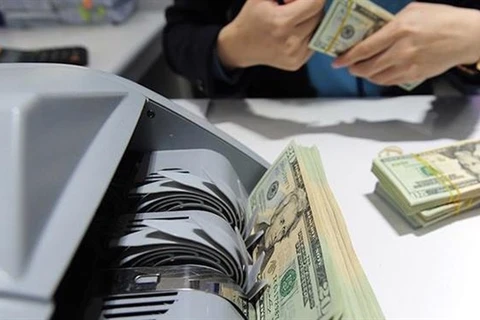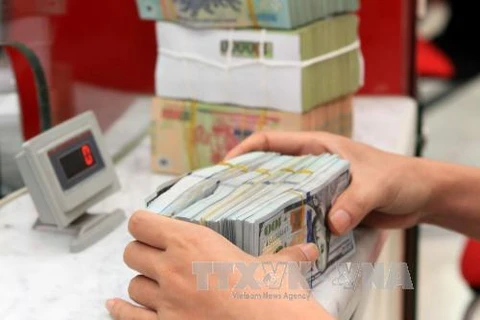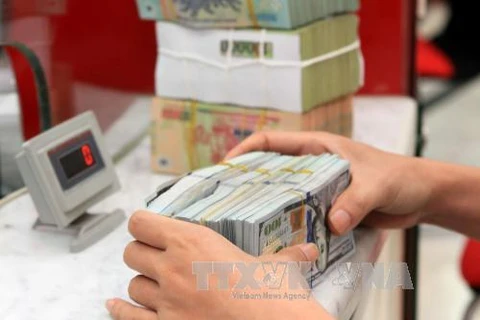Hanoi (VNA) – Although the COVID-19 pandemic has harmed the global economy, remittances to Vietnam in 2021 remained high. In particular, the sum increased sharply at the end of the year, contributing to stabilising the supply of foreign currency in the country and developing the economy.
According to the State Bank of Vietnam (SBV), remittances to Vietnam were estimated at 12.5 billion USD in 2021, up 10 percent compared to 2020. Seventy percent of these were sent via credit institutions, 28 percent through remittance service providers and 2 percent through postal services.
However, the World Bank and the Global Knowledge Partnership on Migration and Development (KNOMAD) forecast that remittances to Vietnam were estimated at 18.1 billion USD in 2021.
As such, the country was the eighth largest remittance recipient in the world and the third largest in the Asia-Pacific region in 2021.
Experts attributed the differences between statistics of international and domestic organisations to the fact that the WB created statistics on collecting the number of workers and expatriates living abroad, as well as on annual income in host countries.
The remittance flow to Vietnam mainly came from the United States, Australia, European countries, Japan and the Republic of Korea.
As one of the major economic centres, Ho Chi Minh City was the country’s largest remittance recipient. The city was expected to get about 6.6 billion USD worth of remittances in 2021, an increase of 9 percent from the previous year. This was a key resource to help the city recover quickly and steadily develop in the post-COVID-19 period.
Remittances increased sharply partly because Vietnam was heavily affected by the pandemic and prolonged social distancing, so people living abroad transferred money home to support their relatives and community to overcome the consequences caused by COVID-19, according to experts.
Thu Hong, a resident of Hanoi’s Cau Giay district, said that every year, her relatives in Australia send money to assist the family during Tet (Lunar New Year) because she is taking care of her mother.
“With that sum of money, I can make ends meet during the period of social distancing,” Hong said, adding that she used the remaining capital for resuming her business after social distancing finished.
Nguyen Thi Thoa, who lives in Ly Nhan district in the northern province of Ha Nam, said that her family built a house worth more than 2 billion VND (86,000 USD) thanks to remittances sent by her two sons and daughter-in-law working in Japan.
"Without regular income from our children, life would be very difficult," said Thoa.
Many villages across the country also enjoyed positive changes thanks to remittances, such as Bac Giang, Bac Ninh, Thai Binh, Thanh Hoa, Nghe An and Ha Tinh provinces.
Resources for economic growth
Experts attributed the strong flow of remittances to the country in recent years to favourable conditions for remittance transfer and receipt.
Economic expert Can Van Luc said that the continuous increase of remittances to Vietnam over the years has contributed to strengthening the supply of foreign currency and stabilising the exchange rate.
Remittance recipients have opportunities to increase their income and stimulate consumption and investment.
Economist Nguyen Tri Hieu agreed, saying the remittances have significantly added to Vietnam's foreign currency reserves. It proved that Vietnamese working abroad believe in the stability of the country’s economy and see better investment opportunities in the domestic market.
To attract more remittances to Vietnam, economic experts suggested that the Government implement policies that drive remittances to invest in the manufacturing sector and human resources development, such as education and public health, creating long-term positive development across the country.
Loosening regulations and terms relating to business investment and speeding up the reform of administrative procedures at all levels are needed to create favourable conditions for overseas Vietnamese to invest in the country. Invisible barriers to new investment fields including energy, healthcare, science and technology and hi-tech agriculture should be removed, experts said./.
























